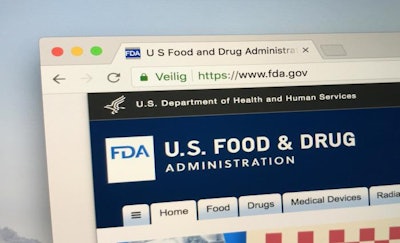
The U.S. Food and Drug Administration (FDA) on April 6 released a guidance document that will allow producers who normally sell their eggs for foodservice and processing the flexibility to sell those eggs for retail sales in supermarkets in order to help meet consumers' increased demand in eggs due to the COVID-19 pandemic.
The United Egg Producers (UEP) staff and consultants have been working on this for several weeks and have been in constant communication with the FDA about the need to find a way to safely supply the retail egg market from facilities that previously supplied the foodservice and further processing markets.
"This policy is intended to remain in effect only for the duration of the public health emergency related to COVID-19 declared by the Department of Health and Human Services," the FDA guidance document explained.
Eggs intended for foodservice and further processing may temporarily be sold to the table egg market when certain FDA egg safety requirements are upheld at individual poultry houses, the document explained.
"We believe these conditions will address food safety concerns that could arise when poultry houses shift from producing eggs for further processing to producing eggs for the table egg market," the document said.
According to the guidance document, under the interim policy, FDA will not oppose if shell eggs from a poultry house containing solely laying hens up to 45 weeks of age are sold to the table egg market if these conditions are followed:
- A producer complies and has followed all requirements of the Egg Safety Rule for the poultry house for the life of the flock.
- Before sending any eggs to the table egg market, a producer simultaneously conducts environmental and egg testing (as described in 21 CFR 118.7 and 118.8) for the poultry house. (Environmental testing would still occur when the laying hens are 40-45 weeks of age and subsequently if molting is induced.)
- No environmental tests or egg tests are positive for SE in the poultry house.
- A producer processes eggs from the poultry house separately from eggs on the farm that are not going to the table egg market.
- A producer implements and maintains a written plan to prevent cross-contamination between poultry houses whose eggs are going to the table egg market and any other poultry houses on the farm.
A more thorough list can be found in the complete FDA guidance document.
"UEP appreciates FDA's work on this issue and commends the agency for the time and effort it has devoted to assuring consumers of a safe, healthy, nutritious, affordable egg supply," said Chad Gregory, president and CEO of UEP.
With many uncertainties related to COVID-19 still lurking ahead, FDA's action provides an avenue for producers to maximize their marketing options, while still maintain the principles of food safety and best practices.
View our continuing coverage of the coronavirus/COVID-19 pandemic.















